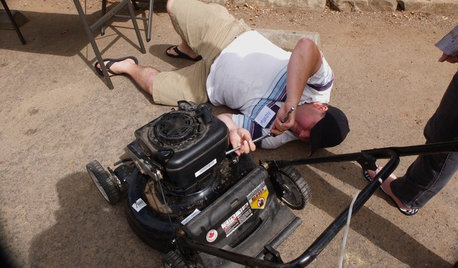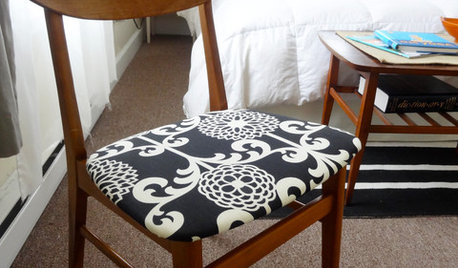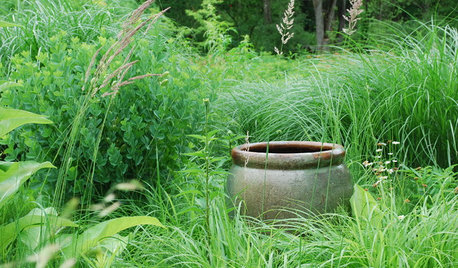Dig a hole and throw in something
kathaab
18 years ago
Related Stories

GARDENING GUIDESGarden Myths to Debunk as You Dig This Fall and Rest Over Winter
Termites hate wood mulch, don’t amend soil for trees, avoid gravel in planters — and more nuggets of garden wisdom
Full Story
ECLECTIC HOMESHouzz Tour: A New Look for Former Student Digs
An ill-treated Victorian in England becomes a more open, extended and aesthetically appealing family home
Full Story
DECORATING GUIDESThe '70s Are Back. Can Ya Dig It?
No need to cringe. These 21 groovy blasts from the past are updated to look fabulous today
Full Story
STUDIOS AND WORKSHOPS8 Rooms That Say 'Let's Make Something'
Stock up on ideas for craft room storage and workspaces from deluxe home workshops
Full Story
CONTEMPORARY HOMESHouzz Tour: Throwing Curves in Santa Barbara
Simple crescents and arcs in the architecture make the most of spectacular views all around this remarkable home
Full Story
EVENTSDon't Throw Away Another Household Item Before Reading This
Repair Cafe events around the world enlist savvy volunteers to fix broken lamps, bicycles, electronics, small appliances, clothing and more
Full Story
COLORColor Commitment Issues? Just Throw In a Pillow
You don't need to go big or permanent to go bold with color in your rooms; you only need to master the easy art of the toss
Full Story
DIY PROJECTS29 Home Projects to Make You a DIY Superstar
Patch up holes, turn trash to treasure, erase stains ... these doable DIY projects will better your home and boost your ego
Full Story
GARDENING GUIDES5 Invaluable Life Lessons From the Garden
The garden is both teacher and healer. Don't be afraid — dig in and reap the benefits
Full Story
COLORHow to Use Marsala, Pantone’s 2015 Color of the Year
Pantone digs deep and goes earthy with its selection. Here are ways to make it work in your home
Full Story





meldy_nva
tapla (mid-Michigan, USDA z5b-6a)
Related Professionals
Derry Landscape Architects & Landscape Designers · Harrison Landscape Architects & Landscape Designers · Kaysville Landscape Contractors · Lebanon Landscape Contractors · New Berlin Landscape Contractors · Plymouth Landscape Contractors · Whitehall Landscape Contractors · Bloomington Window Contractors · Chicago Window Contractors · Dayton Window Contractors · Huntley Window Contractors · Montgomery Village Window Contractors · Scotts Valley Window Contractors · Sugarland Run Window Contractors · Woodland Hills Window Contractorselgrillo
Kathaab_hotmail_com
elgrillo
Chris_MI